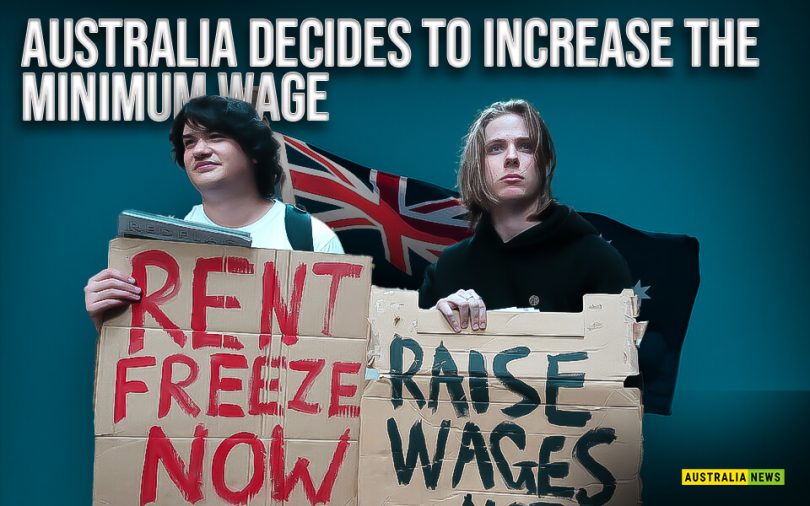Due to the soaring cost of living, Australia has decided to increase the minimum wage by 5.75%. The decision is not welcomed by some experts, as it risks further increasing inflation and interest rates.
On Friday, the independent Fair Work Commission (FWC) decided to raise the minimum wage by 5.75%. It also made a technical adjustment to the national minimum wage, which, according to the union, will improve pay for the lowest-paid workers, who make up around 0.7% of the workforce, by 8.6%.
The move by the FWC would affect the wages of roughly 2 million workers.
As per the RBC capital market’s chief economist, Su-Lin Ong, the increase may cause wage growth to exceed the Reserve Bank of Australia’s predicted peak of 4% and compel raising interest rates to tackle inflation.
“Following several recent developments, including the outcome of today’s minimum wage decision, we are adding a 25 bp hike to our RBA profile in June and another 25 bp in July.”Aggregate wage growth, which rose to a decade-high of 3.7% last quarter, has fallen short of expectations, and RBA Governor Philip Lowe has warned that slow productivity growth poses upside risks to wages.
The National Australia Bank’s economist, Taylor Nugent, also added that the decision can influence the risks further by surging Australian interest rates.
The prevailing cash rate of 3.85% is currently being bet on in futures as a sure bet to rise to 4.1% by August, with a likelihood of an additional increase. In addition, they anticipate a 33% possibility that, following strong April inflation data, the RBA might shock the market with a quarter-point raise as early as next week.
CRISIS OF THE COST OF LIVING
As per FWC President Adam Hatcher, the commission is optimistic about the decision and assures that it will not affect the price-wage spiral.
“We are confident that the increase we have determined will make only a modest contribution to total wages growth in 2023–24.” Hatcher continued that the move would be advantageous to part-time and primarily female workers.
The chief executive of the Australian Chamber of Commerce and Industry, Andrew McKellar, wasn’t as upbeat, anticipating that it will increase expenses for businesses already struggling with supply chain challenges and surging energy prices by an estimated A$12.6 billion.
The Australian Council of Trade Unions gave its approval to the decision.
“People are skipping meals, avoiding the doctor, and dreading their next bill. Rents have skyrocketed along with prices of essentials such as bread, milk, petrol, and electricity,” Secretary Sally McManus stated.
“Today’s increase means these workers can keep their heads above water and not have to cut back even further.”
- Published By Team Australia News








